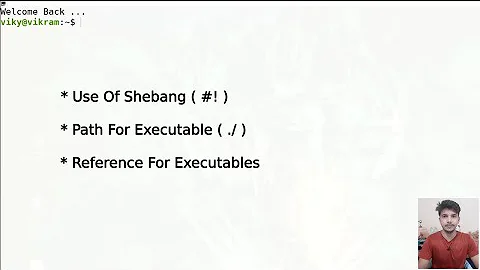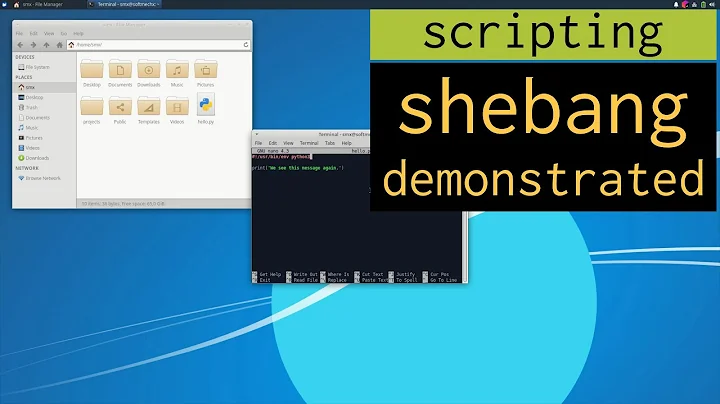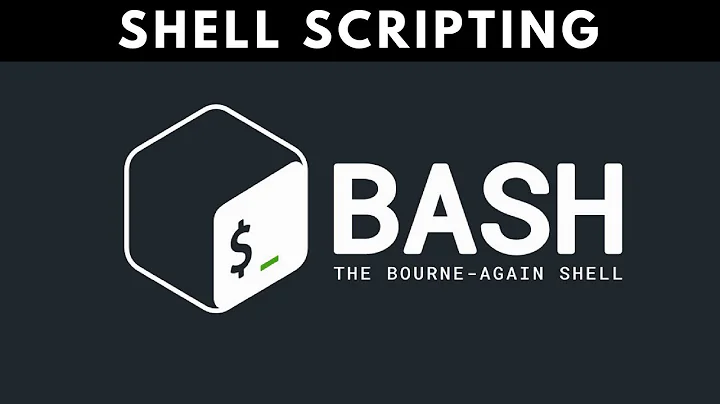Is there a command for running a script according to its shebang line?
Solution 1
Yep. It is called perl. Some examples, with the corresponding interpreter in the shebang line of the file (the actual file extension doesn't matter):
perl foo.bash # works
perl foo.lua # works
perl foo.clisp # works
perl foo.csh # works
perl foo.php # works
perl foo.gnuplot # works (no arguments)
perl foo.pl # works (obviously)
perl foo.py # works
perl foo.sh # works
perl foo.tcl # works
perl foo.rb # works
perl foo.nodejs # works
perl foo.r # works
perl foo.oct # works
perl foo.csharp # works (no arguments)
This is mentioned in Perl's documentation:
If the
#!line does not contain the word "perl" nor the word "indir", the program named after the#!is executed instead of the Perl interpreter. This is slightly bizarre, but it helps people on machines that don't do#!, because they can tell a program that their SHELL is /usr/bin/perl, and Perl will then dispatch the program to the correct interpreter for them.
Solution 2
Scripts do not necessarily have a shebang
If the script was run from the interpreter, You cannot be sure it has the shebang at all. Scripts, run from the interpreter do not need the shebang, if you call the interpreter to run the code.
The answer is therefore no, there is no command that will find out for sure what is the language (interpreter) to run the script with. You can however always look inside the script and see if it has the shebang to find out.
The rules in short:
- When you run the script, calling the interpreter always overrules possible shebangs, executable or not, shebang or not.
- If not executable and run from the interpreter, the script needs no shebang.
- If the script is run without calling the interpreter first, it needs (and uses) the shebang to find out what interpreter to call, and it needs to be executable to have the "permission" to call the interpreter from its shebang.
If the script has no shebang however, there is no (direct*) information inside the script to tell what interpreter to use.
Having said that
You could of course always write a wrapper script to try to find out if the script has the shebang and read the interpreter from that, subsequently run it from the found interpreter.
An example
#!/usr/bin/env python3
import subprocess
import sys
args = sys.argv[1:]; script = args[0]
try:
lang = open(script).readlines()[0].replace("#!", "").strip().split()[-1]
cmd = [lang, script]+args[1:]
subprocess.call(cmd)
except (PermissionError, FileNotFoundError, IndexError):
print("No valid shebang found")
-
Save it as
tryrunin$PATH(e.g.~/bin, make the directory if it does not exist, log out and back in), make it executable. Then running:tryrun /path/to/nonexecutablescriptcalls (tested) the correct interpreter on my non-executable
pythonandbashscripts.
Explanation
- The script simply reads the first line of the script, removes the
#!and uses the rest to call the interpreter. - If it fails to call a valid interpreter, it will raise either a
PermissionErroror aFileNotFoundError.
Note
The extension (.sh, .py etc) plays no role whatsoever in determining the appropriate interpreter on Linux.
(*It is of course possible to develop a "smart" guess- algorithm to determine the syntax from the code.)
Solution 3
You can achieve this with a script like this:
#!/bin/bash
copy=/tmp/runner.$$
cp $1 ${copy}
chmod u+x ${copy}
${copy}
rm ${copy}
Thus:
$ echo "echo hello" > myscript
$ ./myscript
bash: ./myscript: Permission denied
$ ./runscript myscript
hello
I recommend against doing this. Permissions are there for a reason. This is a program for subverting permissions.
Note that shebang handling is a kernel function (in the Linux source code - fs/binfmt_script.c). Fundamentally the process invoking a script directly doesn't know about the #! -- the kernel uses it to work out that it needs to launch an interpreter.
Related videos on Youtube
Aivar
Teaching assistant in University of Tartu, Department of CS
Updated on September 18, 2022Comments
-
Aivar over 1 year
If I want to execute a bash script which doesn't have its execution permission set, I can do:
bash script.shWhat should I use instead of
bashif the script isn't executable and I don't know the correct interpreter? Is there a command that looks up the interpreter from shebang line and executes the script with it? -
Aivar over 7 yearsOK, so it means although Linux has shebang extraction implemented somewhere (so that it can select correct interpreter for executable srcipts), it's not provided as a standalone standard command.
-
 Jacob Vlijm over 7 years@Aivar extracting the shebang isn' t the issue, but running code without it is perfectly possible.
Jacob Vlijm over 7 years@Aivar extracting the shebang isn' t the issue, but running code without it is perfectly possible. -
 Jacob Vlijm over 7 years@Aivar Ah, I see what you mean. If the script is executable and run without language in the command, the script calls the interpreter, not the other way around.
Jacob Vlijm over 7 years@Aivar Ah, I see what you mean. If the script is executable and run without language in the command, the script calls the interpreter, not the other way around. -
slim over 7 yearsWell, that's just dirty.
-
Paŭlo Ebermann over 7 years@JacobVlijm I wouldn't say "the script calls the interpreter", more like "the Linux kernel takes the shebang line for figuring out which interpreter to call when executing the script".
-
 Jacob Vlijm over 7 years@PaŭloEbermann Thanks! True of course. The kernel takes care of the whole procedure either way, but figuratively, and I think better for understanding, is to say the script is "allowed" to take care of what interpreter to call (and actually do it). Not sure about the wording, but I' d like to describe it as if the initiative is on the script, while the kernel actually does the job.
Jacob Vlijm over 7 years@PaŭloEbermann Thanks! True of course. The kernel takes care of the whole procedure either way, but figuratively, and I think better for understanding, is to say the script is "allowed" to take care of what interpreter to call (and actually do it). Not sure about the wording, but I' d like to describe it as if the initiative is on the script, while the kernel actually does the job. -
 Jacob Vlijm over 7 years@OleTange surprising. Obviously Perl is smart enough to read the shebang and not pushes itself upfront without looking. Without the shebang, also Perl is helpless however.
Jacob Vlijm over 7 years@OleTange surprising. Obviously Perl is smart enough to read the shebang and not pushes itself upfront without looking. Without the shebang, also Perl is helpless however. -
 simbabque over 7 years@JacobVlijm that's true, but then again the question specifically says there is always a shebang
simbabque over 7 years@JacobVlijm that's true, but then again the question specifically says there is always a shebang -
Pysis over 7 yearsDoes the file extension
.jsalso work? -
Pysis over 7 yearsAlso, what machines don't do
#!. I've seem a few to more now, and have not experienced this problem. -
 boatcoder over 7 yearsI had always assumed that was a function of the shell, NOT the kernel. Learned something new today.
boatcoder over 7 yearsI had always assumed that was a function of the shell, NOT the kernel. Learned something new today. -
kaitosenpai over 7 years@Pysis the file extension does not matter. It is only the #! in the first line that matters. I just included it as a short way of explaining all the script languages that I tested.
-
Pysis over 7 yearsOk, it's just your example seemed to highlight a lot of file extensions, rather than showcase several shebang lines from files, and I guess I assumed that's how its prediction worked.
-
kaitosenpai over 7 years@Pysis No modern OSes. But I seem to remember the early versions of Ultrix had the problem with #!.
-
slim over 7 years@boatcoder -- Since you're interested, added a link to where the Linux source code handles it.
-
slim over 7 yearsI like how
man perlrunsheepishly admits that it's "slightly bizarre" :). I think this should be treated as a curiosity aimed at non-UNIX environments and very very old versions of UNIX. -
Kevin over 7 years@OleTange: I'm pretty sure Windows doesn't do
#!out of the box. But YMMV on whether Windows is a "modern" OS.




